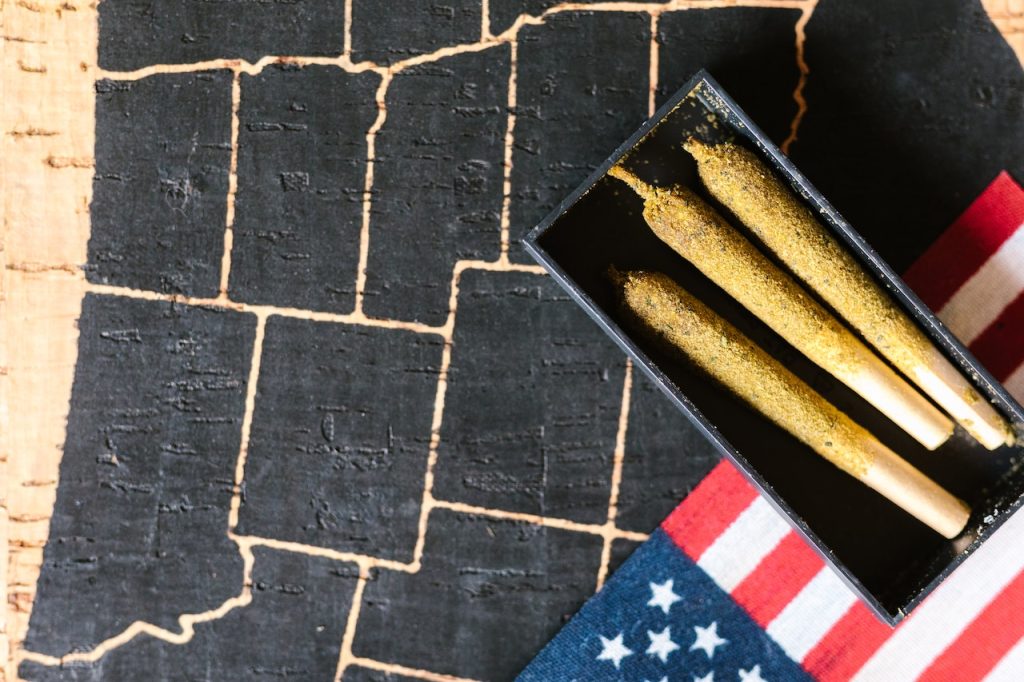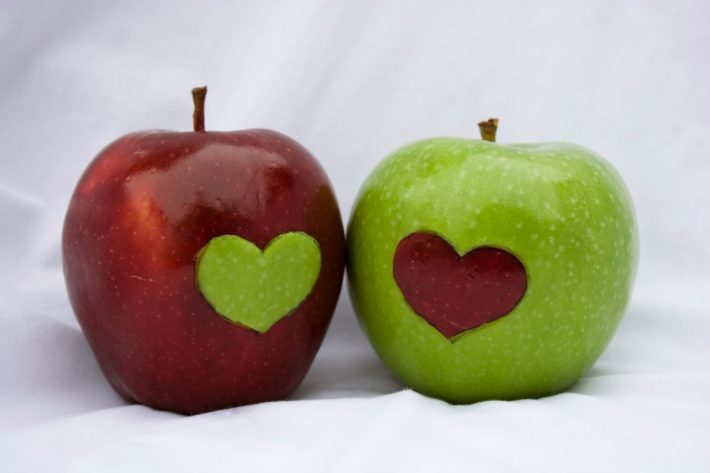Delta 8 and Delta 9 are not even like comparing apples and oranges. It’s more like a red apple versus a green apple, a mackintosh and a granny smith.
When you look at the molecular makeup of D8 and D9, you’ll see a lot of similarity between the two, as they’re almost identical. What’s most important is the placement of a key double bond. Delta 9 has this double bond on the 9th carbon atom in it’s structure, while Delta 8 has it on – you guessed it – the 8th. Because of the way federal law is written, the main practical difference is that one can be found for sale in your local store, and the other could land you in a correctional facility.
What makes Delta 8 legal when Delta 9 Isn’t?
While both cannabinoids are present in hemp and marijuana, Delta 8 THC is legal in some states, and Delta 9 is not. So, what’s the difference? To answer those, let’s dig into it.
There is no denying that Delta 8 is very popular, and it’s still growing. The 2018 Farm bill signed by former President Donald Trump changed the list of Schedule I illegal drugs by qualifying the difference between hemp and marijuana. Crucially, hemp and cannabinoids derived from it were considered federally legal if they contained no more than 0.3% of Delta-9 THC on a dry-weight basis. Because the law didn’t specify ALL THCs, just Delta 9, it paved the way for products like Delta 8 to become legal in some states. Lawsuits are still being fought, but that hasn’t stopped D8 from rising to the top of the market.

How do they work? What makes Delta 8 so special?
Delta 8 and Delta 9 both interact with our bodies at crucial chemical receptors. Primarily, these receptors are located in the brain, whereas CBD interacts with ones elsewhere in the body. Delta 9 however, is considered a “more potent” or “intense” experience than Delta 8, broadly speaking. You might wonder how that’s a benefit – read on to find out!
Many people prefer Delta-8 over other products because of its exceptional relaxing properties. Whether or not you enjoy the “high” of delta 9, delta 8 is generally less intense in comparison, and may be considered a more comfortable experience. As such, people are drawn to Delta 8 as a way to kick back and unwind.

Many people opt for CBD products instead of marijuana or weed because CBD products contain low amounts of THC. For folks who want the health-supporting benefits of hemp without the high, CBD is the way to go.
Broadly speaking, because of the location of the double bond in Delta 8, it has a harder time binding to certain chemical receptors in the brain and body. Less bonding usually means less interaction – and potentially a less intense experience than Delta 9.
As a cannabinoid, Delta 8 is thought to interact with the natural Endocannabinoid System in our bodies. This system, called the ECS, supports a lot of our health and wellbeing. It can help regulate functions like mood, digestion, sleep, and recovery. By interacting with essential hormones like dopamine and serotonin in your body through the ECS, Delta 8 might offer natural support similar to CBD – though this is yet to be proven.
Although Delta-8 and most other CBD products have similar effects, they also have some notable differences. Notably, CBD bonds with different chemical receptors, and won’t get you high. Furthermore, CBD is far and away more available than Delta 8 is across the country.

However, there is a significant reason why many people now prefer Delta-8 over Delta-9; it is that Delta-8 products are increasingly more trusted because of their relative ‘safety”. This safety comes from having a product made according to broader manufacturing standards that apply to hemp. Without certain standards, even on a state-by-state basis, these products would become much less trustworthy. With independent lab testing becoming more common in the industry, it’s easier for consumers to trust the product they’re purchasing. No brand wants to be associated with a poor-quality product, after all.
Final Thoughts
The Food and Drug Administration wants you to know that the FDA has not approved Delta 8 for any form of safe use. Delta 8 products are not intended to diagnose, treat, cure, or prevent any disease. As a THC cannabinoid, it’s possible that Delta 8 will show up on a drug test. Despite this, the future is brighter than ever for hemp-derived cannabinoids.
Delta-8 is one of the most popular hemp-derived products, and we have seen ample reasons. From legal acceptance on the rise to a smoother experience, it’s clear Delta 8’s popularity is here to stay. If you’re curious, check out our new arrivals section here at Sun State Hemp today!

